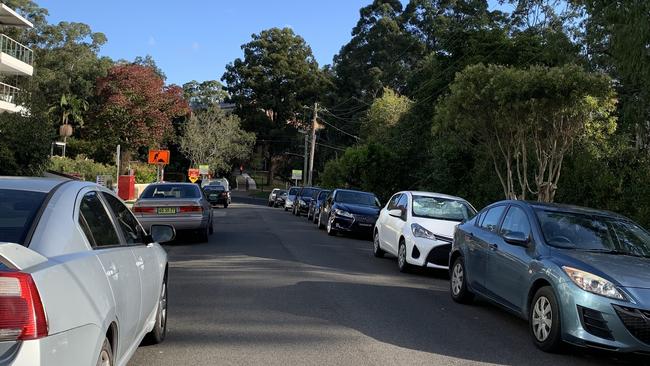Joseph Strada: Disability support worker who exposed himself to women wins appeal
A disability support worker who was convicted after exposing himself to multiple women wept as his conviction was set aside and his charges were dismissed.

Local
Don't miss out on the headlines from Local. Followed categories will be added to My News.
A disability support worker who was convicted after exposing himself to multiple women wept as his conviction was set aside and his charges were dismissed on appeal.
Joseph Strada, 27, from Turramurra, was convicted on five counts of exposing himself in public and sentenced to a 12-month Community Correction Order at Hornsby Local Court in May.
The court previously heard five women, who did not know him, alleged he had exposed himself to them on streets in Denistone and Normanhurst on five occasions from July to December 2019.

Strada was working as an occupation support worker at an agency assisting young people living with a disability at the time.
The court previously heard Strada got out of his car and exposed himself to one woman without her consent on two separate occasions outside her home near Normanhurst Boys High School late last year.
Magistrate Robyn Denes said the offending was “serious” and that a level of “pre-planning” was involved particularly because one female victim was targeted twice.
“I accept there is a mental health issue behind it...it explains it but it doesn’t excuse it,” she previously told the court.
Strada launched an appeal and faced Downing Centre District Court via AVL supported by his mother Mary to appeal his conviction and sentence on Wednesday morning.

Letters from Strada’s parents and an updated psychological report by Mr Awit were tendered as part of the appeal.
The court heard he has since been diagnosed with a mental illness.
In court, Justice Penelope Hock said she was also aware of the reason behind his mental illness but did not wish to state it in open court because it was a “very sensitive matter.”
Judge Hock said the psychological report stated Strada has had 16 consultations and has shown “significant improvement.”

His lawyer Bryan Rowe said Strada has been in treatment since February and has been subject to extra-curial punishment from media exposure.
The crown prosecutor agreed that Strada has been formally diagnosed and said the matter could be dealt with on mental health grounds.
“The crown’s position is that it is open to your honour to dispose of this matter under Section 32 (Mental Health Act) with the condition that the offender undertake treatment in accordance with the treatment plan,” the crown prosecutor said.

The prosecutor said it was equally available for the judge to deal with the matter under a conditional release order without a conviction.
While she said the protection of the community and recognition of the harm to the victims was the crown’s “greatest concern” in being reflected in the sentence, she said it was addressed by the offender’s psychological treatment.
“This really has been addressed by the offender seeking and undertaking psychological intervention to address that risk of reoffending,” she said.

Judge Hock said the crown’s submission “fairly” reflected the situation.
Strada put his hands to his face and cried as Judge Hock said she found the offender to be suffering from a mental illness at the time of the offences.
“That is clearly established from the report of Mr Awit…and the report of a clinical psychologist…the reasons or triggering factors are highly sensitive and I do not propose to include it in this judgment,” she told the court.
Judge Hock said it was appropriate for the matter to be dealt with by way of the Mental Health Act.
She dismissed the charges and discharged Strada on the condition he attends ongoing treatment with his psychologist.



